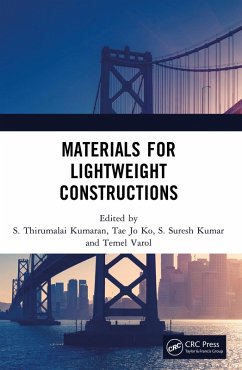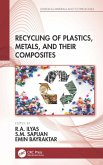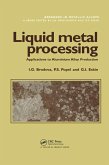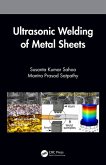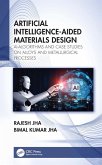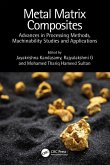Materials for Lightweight Constructions (eBook, PDF)
Redaktion: Kumaran, S. Thirumalai; Varol, Temel; Kumar, S. Suresh; Ko, Tae Jo
48,95 €
48,95 €
inkl. MwSt.
Sofort per Download lieferbar

24 °P sammeln
48,95 €
Als Download kaufen

48,95 €
inkl. MwSt.
Sofort per Download lieferbar

24 °P sammeln
Jetzt verschenken
Alle Infos zum eBook verschenken
48,95 €
inkl. MwSt.
Sofort per Download lieferbar
Alle Infos zum eBook verschenken

24 °P sammeln
Materials for Lightweight Constructions (eBook, PDF)
Redaktion: Kumaran, S. Thirumalai; Varol, Temel; Kumar, S. Suresh; Ko, Tae Jo
- Format: PDF
- Merkliste
- Auf die Merkliste
- Bewerten Bewerten
- Teilen
- Produkt teilen
- Produkterinnerung
- Produkterinnerung

Bitte loggen Sie sich zunächst in Ihr Kundenkonto ein oder registrieren Sie sich bei
bücher.de, um das eBook-Abo tolino select nutzen zu können.
Hier können Sie sich einloggen
Hier können Sie sich einloggen
Sie sind bereits eingeloggt. Klicken Sie auf 2. tolino select Abo, um fortzufahren.

Bitte loggen Sie sich zunächst in Ihr Kundenkonto ein oder registrieren Sie sich bei bücher.de, um das eBook-Abo tolino select nutzen zu können.
This book presents the concepts and methods involved in the development of various materials for lightweight constructions include metals, alloys, polymers, and composites. Further, it provides relevant case studies and examples including traditional to advanced manufacturing concepts of lightweight, and bio-degradable materials.
- Geräte: PC
- ohne Kopierschutz
- eBook Hilfe
- Größe: 28.35MB
Andere Kunden interessierten sich auch für
![Recycling of Plastics, Metals, and Their Composites (eBook, PDF) Recycling of Plastics, Metals, and Their Composites (eBook, PDF)]() Recycling of Plastics, Metals, and Their Composites (eBook, PDF)54,95 €
Recycling of Plastics, Metals, and Their Composites (eBook, PDF)54,95 €![Liquid Metal Processing (eBook, PDF) Liquid Metal Processing (eBook, PDF)]() I. G. BrodovaLiquid Metal Processing (eBook, PDF)67,95 €
I. G. BrodovaLiquid Metal Processing (eBook, PDF)67,95 €![Ultrasonic Welding of Metal Sheets (eBook, PDF) Ultrasonic Welding of Metal Sheets (eBook, PDF)]() Susanta Kumar SahooUltrasonic Welding of Metal Sheets (eBook, PDF)49,95 €
Susanta Kumar SahooUltrasonic Welding of Metal Sheets (eBook, PDF)49,95 €![Flux Bounded Tungsten Inert Gas Welding Process (eBook, PDF) Flux Bounded Tungsten Inert Gas Welding Process (eBook, PDF)]() P. ChakravarthyFlux Bounded Tungsten Inert Gas Welding Process (eBook, PDF)23,95 €
P. ChakravarthyFlux Bounded Tungsten Inert Gas Welding Process (eBook, PDF)23,95 €![Microstructure of Metals and Alloys (eBook, PDF) Microstructure of Metals and Alloys (eBook, PDF)]() Ganka ZlatevaMicrostructure of Metals and Alloys (eBook, PDF)67,95 €
Ganka ZlatevaMicrostructure of Metals and Alloys (eBook, PDF)67,95 €![Artificial Intelligence-Aided Materials Design (eBook, PDF) Artificial Intelligence-Aided Materials Design (eBook, PDF)]() Rajesh JhaArtificial Intelligence-Aided Materials Design (eBook, PDF)48,95 €
Rajesh JhaArtificial Intelligence-Aided Materials Design (eBook, PDF)48,95 €![Metal Matrix Composites (eBook, PDF) Metal Matrix Composites (eBook, PDF)]() Metal Matrix Composites (eBook, PDF)46,95 €
Metal Matrix Composites (eBook, PDF)46,95 €-
-
-
This book presents the concepts and methods involved in the development of various materials for lightweight constructions include metals, alloys, polymers, and composites. Further, it provides relevant case studies and examples including traditional to advanced manufacturing concepts of lightweight, and bio-degradable materials.
Dieser Download kann aus rechtlichen Gründen nur mit Rechnungsadresse in A, B, BG, CY, CZ, D, DK, EW, E, FIN, F, GR, HR, H, IRL, I, LT, L, LR, M, NL, PL, P, R, S, SLO, SK ausgeliefert werden.
Produktdetails
- Produktdetails
- Verlag: Taylor & Francis eBooks
- Seitenzahl: 260
- Erscheinungstermin: 13. September 2022
- Englisch
- ISBN-13: 9781000646627
- Artikelnr.: 64371246
- Verlag: Taylor & Francis eBooks
- Seitenzahl: 260
- Erscheinungstermin: 13. September 2022
- Englisch
- ISBN-13: 9781000646627
- Artikelnr.: 64371246
- Herstellerkennzeichnung Die Herstellerinformationen sind derzeit nicht verfügbar.
Dr. S. Thirumalai Kumaran received his M.Tech in Manufacturing Engineering (Gold medallist) from Government College of Technology, India, in 2008. He completed his Ph.D. degree in Mechanical Engineering from Kalasalingam Academy of Research and Education (KARE), India, in 2015. After completing Ph.D., he worked as Assistant Professor at the School of Mechanical Engineering, Yeungnam University, South Korea for a period of one year. His credentials includes three projects (one as PI and two as Co-PI) from UGC-DAE, BRNS and CVRDE worth of Rs.42,62,500/- and also published over 80 SCI/Scopus indexed journals with over 1000 citations. Recently he was awarded "Young Scientist in Mechanical Engineering" by Venus International Foundation, India. Currently at KARE, he is acting as Associate Professor in the Department of Mechanical Engineering. Prof. Tae Jo Ko is a Professor in Mechanical Engineering at Yeungnam University, South Korea. He received his Ph.D. in Mechanical Engineering from POSTECH, South Korea. His research interests include micro-cutting process, non traditional machining, surface texturing, bio-machining, hybrid EDM-milling process, deburring process of CFRP composite, and CFRP drilling. He launched new research in the area of rechargeable battery recently and digital twins for manufacturing. He is acting as an Editor in "International Journal of Precision Engineering and Manufacturing" - impact factor of 1.378 (2019). His research outcomes are recognized globally and have published over 120 publications in SCI/Scopus indexed journals with over 3200 citations. He has also received many National and International project funding and travelled across globe to deliver keynote lectures. Currently, he is also acting as a Visiting Professor in Hunan University of Science and Technology, China. Dr. S. Suresh Kumar completed his Post graduate degree in Manufacturing Engineering from Alagappa Chettiar College of Engineering and Technology, India, in 2012. He received his Ph.D. degree in Mechanical Engineering from Kalasalingam Academy of Research and Education (KARE), India, in 2016. He also visited Karadeniz Technical University, Turkey for his post-doctoral experience in 2018. Besides, he is having 8.5 years of teaching and 7.5 years of research experience. His area of research includes fabrication of materials, processing and characterization of materials. He has published more than 25 International Journals and Conferences in repute. At present, he is working as Associate Professor in the Department of Mechanical Engineering in KARE. Dr. Temel Varol obtained his Ph.D. in Mechanical Engineering from the Karadeniz Technical University (KTÜ), Turkey, in January 2016. Then, he began education and research studies in the Department of Metallurgical and Materials Engineering at the KTÜ, Turkey. Dr. Varol is Associate Professor in the Department of Metallurgical and Materials Engineering at the KTÜ, Turkey. He is also the Vice Dean of Engineering Faculty at KTÜ. His current research interests include powder metallurgy, metal based additive manufacturing, mechanical alloying, coating, non-ferrous metals, metal matrix composites, electrical materials, porous structures, biomaterials and conductive materials. His research outcomes are recognized both nationally and internationally, as evident from his over 50 publications, many of which are published in high-impact journals and well cited. Dr. Varol also has an international patent on the development of new type electrical contact materials. He has expertise in gaining national and international funding, has established a number of fruitful national and international collaborations. Dr. Varol is a member of the Chamber of Mechanical Engineers in Turkey.
1. Introduction to Lightweight Materials
2. Metals and Alloys for Lightweight Automotive Structures
3. Polymer for Structural Applications
4. Chemical Property and Characteristics of Polymer
5. Mechanical Testing and its Performance
6. Green Manufacturing and Environment
7. Lightweight 3D Printed Materials
8. Biodegradable Materials
9. Sustainable Composites for Lightweight Applications
10. Data-Driven Optimization of Manufacturing Processes
11. Conclusions and Challenges
2. Metals and Alloys for Lightweight Automotive Structures
3. Polymer for Structural Applications
4. Chemical Property and Characteristics of Polymer
5. Mechanical Testing and its Performance
6. Green Manufacturing and Environment
7. Lightweight 3D Printed Materials
8. Biodegradable Materials
9. Sustainable Composites for Lightweight Applications
10. Data-Driven Optimization of Manufacturing Processes
11. Conclusions and Challenges
1. Introduction to Lightweight Materials
2. Metals and Alloys for Lightweight Automotive Structures
3. Polymer for Structural Applications
4. Chemical Property and Characteristics of Polymer
5. Mechanical Testing and its Performance
6. Green Manufacturing and Environment
7. Lightweight 3D Printed Materials
8. Biodegradable Materials
9. Sustainable Composites for Lightweight Applications
10. Data-Driven Optimization of Manufacturing Processes
11. Conclusions and Challenges
2. Metals and Alloys for Lightweight Automotive Structures
3. Polymer for Structural Applications
4. Chemical Property and Characteristics of Polymer
5. Mechanical Testing and its Performance
6. Green Manufacturing and Environment
7. Lightweight 3D Printed Materials
8. Biodegradable Materials
9. Sustainable Composites for Lightweight Applications
10. Data-Driven Optimization of Manufacturing Processes
11. Conclusions and Challenges
